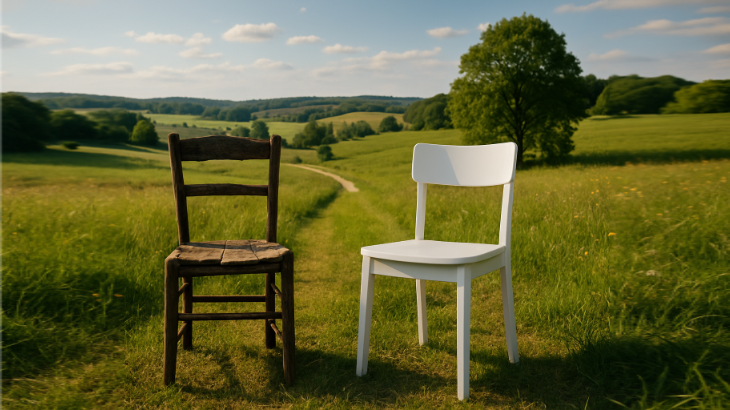CA-WN has a new Chair

Jane Wood, CA-WN’s Chair for its founding four years, has handed the reins to Harry Mellor. For a local student’s project both were questioned about being CA-WN’s Chair.
Here’s what they said.
Q1 What made you want to join CA–WN?
HARRY MELLOR
"We didn’t join CA-WN. CA-WN joined us.
We had both been in a Towcester-based group raising public awareness of the effects of global warming. Rather than being a talking shop, a friends’ discussion group, we were intent on arranging practical actions for reducing our greenhouse gas emissions and preparing for the inevitable fall-out from everyone fly-tipping their rubbish into the atmosphere.
The breakout of Covid put an end to the group’s face-to-face meetings and generally drew attention to how ill-prepared we all were for something so life changing. Parallels were inevitably drawn between our unreadiness for the impact of the epidemic on everyday life and the lack of public anticipation of the equally catastrophic future effects of climate change.
During lockdown we switched to video conferencing. Word-of-mouth spread news of our regular online meetings and people from beyond our local area began joining in. Gradually we became a much larger group. When West Northamptonshire Council took over all the public services previously the responsibility of different councils it was time to formalise ourselves; Climate Action-West Northamptonshire, CA-WN, was constituted to reduce greenhouse gas emissions, improve biodiversity, and build resilience to the effects of a changing climate for all in Northampton, Daventry, Towcester, Brackley and the surrounding villages."
Q2 What is it like being the Chair of CA-WN?
JANE WOOD
" Very rewarding - during my four years as Chair the group has grown and developed far beyond what we might have expected. It is also hard work, as like most voluntary groups there is always more to do and limited resource to do it!
Prior to joining the group that was the forerunner of CA-WN, I'd been worried about climate and the environment for a long time and trying to make changes in my own life to minimise impact on the environment. What I have found in CA-WN is a group of people who feel the same - which is wonderful, partly because I feel like less of an oddball, and also because collectively we can have much more impact than as individuals."
Q3 What do you think locals could do to help in looking after the environment?
HARRY MELLOR & JANE WOOD
"There are lots of resources online suggesting specific actions that people can take. Some examples – embrace second-hand instead of buying new stuff, leave an untidy corner for wildlife in your garden, plan your meals to avoid wasting food ...
Every action counts, no matter how small. It is impossible to live a perfect ‘eco-friendly’ lifestyle, but we can all do a little better.
However, individual action is not enough – we also need to put pressure on politicians, corporates and public bodies to do the right thing.
To answer the question ‘what can I do?’ directly we cannot do better than paraphrase the respected climate scientist Katharine Hayhoe:
- Start a conversation about solutions and what people can do
- Join a climate group to boost your impact
- Make your money count by choosing your financial institutions carefully
- Keep elected officials accountable at every level
- Inspire your place of work or school to take action
- Ask news outlets and journalists to report on climate
- Make personal changes yourself but don’t stop there: share them, to make them contagious
See Prof Hayhoe’s comments on this in full on her website https://katharinehayhoe.com/faqs/#carbon-footprint.
To answer the question in a wider and less direct fashion - it is a fact that ‘the environment’ has always looked after itself. The Earth’s ecosystems are complex and finely balanced; humans are part of these ecosystems, not in control of them.
Humans arrived only very recently and in a few thousand years have evolved from living in small self-sufficient groups into a species that makes huge demands on the resources of the planet, with individuals dependent on others for every aspect of their lives, including the very basics of life; the food we eat, the water we drink and the places we call home. This makes us very vulnerable to breakdown in the intricate societal and economic systems we depend upon, systems which are looking increasingly fragile in the face of changing weather patterns and depletion of ecosystems (‘nature’).
So our answer is also that local people should take stock of their personal situation, assess our preparedness for all eventualities and decide what more we might do to ensure our continued wellbeing."
